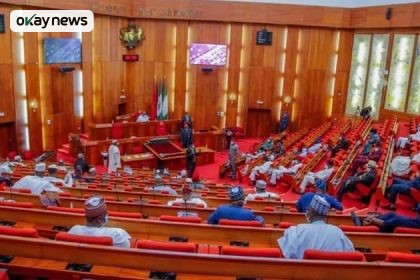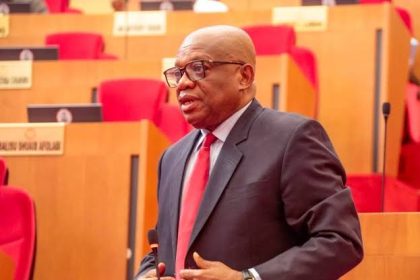The Economic and Financial Crimes Commission (EFCC) has launched a sweeping crackdown on abandoned estates in Abuja, many of which it says are linked to corrupt public servants who diverted public funds into failed real estate projects.
Speaking at a “Policy Dialogue on Critical Issues Affecting Nigeria’s Real Estate Ecosystem” hosted by Law Corridor, EFCC Chairman Ola Olukayode revealed that the anti-graft agency has constituted a special task force to identify and investigate abandoned properties, starting with the Federal Capital Territory.
“We will start visiting all the estates, not only in Abuja but across Nigeria. We want to know who owns what,” Olukayode declared. “It will shock you that some of these estates have been abandoned for 10 to 20 years. They just take it to a level and abandon it.”
According to the EFCC boss, intelligence gathered so far indicates that many of these projects were funded by civil servants with unexplained wealth. Once they exit office and their illicit financial channels dry up, the developments are left in limbo.
“In recent times, we have had cause to file for forfeiture of about 15 such estates,” Olukayode disclosed. “And we are coming for more.”
He warned lawyers, developers, and other stakeholders in the real estate space not to serve as conduits for money laundering, stressing that ignorance will not shield anyone from prosecution.
“Start with what you can handle,” he cautioned. “Don’t let anybody hide under you and do money laundering. We are going to expose you.”
Olukayode also questioned the lifestyle of senior civil servants, wondering how a Level 17 officer earning less than ₦1 million monthly could afford a ₦500 million mansion. He urged the country to adopt a credit-based economic model rather than an all-cash system that enables untraceable transactions.
“We can’t build an economy where you pay for everything in cash — from cars to houses and even suits,” he said. “This culture must change if Nigeria is to progress.”
On the banking sector, the EFCC chairman revealed stark contrasts in compliance levels. While some banks boast clean records and tight compliance protocols, others have been complicit in large-scale fraud.
“There are banks where $10 million is found in the vault with no documentation,” he said, warning that the agency would continue to monitor financial institutions closely.
Also speaking at the event, President of the Nigerian Bar Association (NBA), Mazi Afam Osigwe, SAN, called for the establishment of a centralized property ownership database to increase transparency in the real estate sector. He further criticized the arbitrary revocation of land titles, warning that such actions undermine investor confidence.
In his remarks, Mr. Ayokunle Erin, Practice Group Lead at Law Corridor, described the real estate sector as riddled with policy failures and legal ambiguities. He highlighted Nigeria’s housing deficit, estimated at 17 to 20 million units, and noted that Abuja’s 2024 housing output of just 5,000 units addressed less than 10% of the capital’s needs.
“This shortfall is not just a failure of delivery, but a symptom of regulatory chaos that emboldens fraudsters, quacks, and unlicensed agents,” Erin warned.







